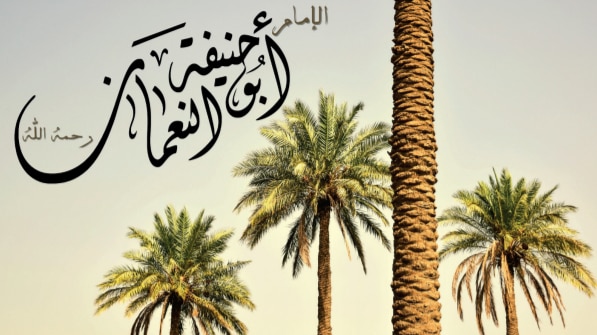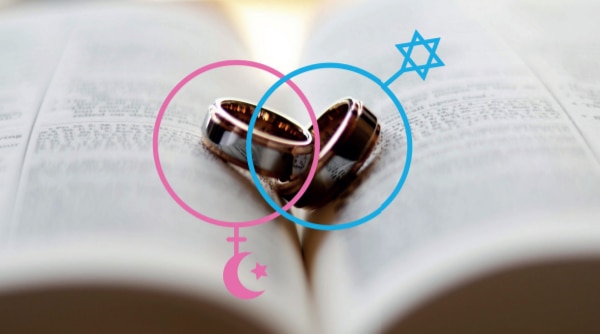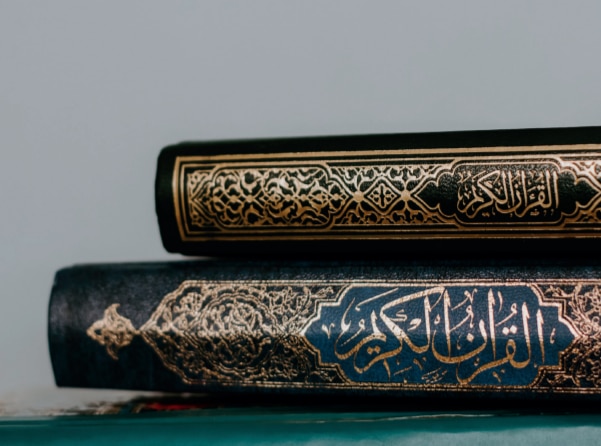Guidance regarding basic Islamic issues – which Hazrat Amirul Momineen, Khalifatul Masih Vaa has given on various occasions in his written correspondence and during MTA programmes – is being officially published below for everyone’s benefit
Hanafi fiqh
An Arab Ahmadi sent a statement of the Promised Messiahas regarding the Hanafi fiqh to Hazrat Amirul Momineen, Khalifatul Masih Vaa and said about himself, “I do not attach much importance to the Hanafi fiqh because I am also against qiyas [analogical deduction].” He also asked if he could follow the Zahiri fiqh because it had come up with a compelling theory about following the apparent [zahir] injunctions of the Holy Quran and the Hadith. Huzoor-e-Anwaraa, while replying to this question in his letter dated 21 December 2020, gave the following instructions:
“In his statement, which you have mentioned in your letter, the Promised Messiahas has refuted the views of two groups of his time both of whom had verged on opposite extremes regarding the Quran and the Hadith. Hence, he elucidated the true station of the Holy Quran and the Hadith and admonished his Jamaat to give preference to ahadith over manmade jurisprudence as long as they do not contradict the Holy Quran and the sunnah, regardless of how low their grading may be. Moreover, he said that jurisprudence ought to be based on the Holy Quran, the sunnah of the Messengersa and the Prophetic ahadith. And if one was unable to find the solution to a certain matter from these three sources, then, one ought to follow the Hanafi school of jurisprudence. Moreover, if, because of modern developments, the Hanafi school of jurisprudence is unable to provide correct guidance, the scholars of the Community ought to determine such issues in accordance with their God-given reasoning [ijtihad]. Hence, the Promised Messiahas states:
‘It is incumbent on my Jamaat to follow any hadith which does not oppose and contradict the Holy Quran and sunnah, regardless of its authenticity and give preference to it over manmade jurisprudence. And if they are unable to find [elaboration on] a certain matter from the hadith, the sunnah or from the Holy Quran, in such a case, they should follow the Hanafi school of jurisprudence, because this school constitutes the majority [among the Muslims] and this is an indication of God’s will. If, because of modern developments, the Hanafi school of jurisprudence is unable to provide an adequate judgement, the scholars of the Community ought to determine such issues in accordance with their God-given reasoning. However, at the same time, they must exercise caution, lest they unjustly denounce the hadith like Maulavi ‘Abdullah Chakrhalavi. Nonetheless, they ought to reject any such hadith which is at variance with the Quran and sunnah.’ (Review Bar Mubahathah Batalavi Wa Chakrhalavi, Ruhani Khazain, Vol. 19, p. 212)

By the grace of Allah the Exalted, Jamaat-e-Ahmadiyya is fully committed to this advice of the Promised Messiahas and whenever ijtihad is required on an issue, the scholars of the Jamaat, under the auspices of Khilafat-e-Ahmadiyya, thoroughly deliberate such an issue by utilising the method of ijtihad.
It is not right for an Ahmadi to dislike qiyas and, on that basis, consider the Hanafi jurisprudence to be errant. It is not forbidden for scholars and mujtahidin to adopt the method of qiyas while staying within the permissible limits, when deducing from the Holy Quran, the sunnah and the Hadith, because there are many arguments in favour of qiyas in the Holy Quran and the instructions of the Holy Prophetsa. Moreover, the Rightly-Guided Khulafa also employed qiyas during their blessed eras and solved many newly-arisen issues by inferring from incidents from the life of the Holy Prophetsa.
Furthermore, the Promised Messiahas did not like people who mocked Hazrat Imam Abu Hanifarh by calling him ahl ar-ra’y on account of his qiyas. Hence, the Promised Messiahas once addressed Maulvi Muhammad Husain Batalvi who had made a similar error and, while describing the status of Hazrat Imam Abu Hanifarh, said:
‘O Hazrat Maulvi Sahib! Please do not be angry. If you people had had even the slightest good opinion of Abu Hanifarh, the great Imam, then you would not have used such derisive and contemptuous words. You are ignorant of the status of the respected Imam. He was a great ocean and all the others are his estuaries and branches. To call him ahl ar-ra’y is a heavy betrayal! The great Imam, Hazrat Abu Hanifarh, in addition to being preeminent in the sciences related to the Prophetic legacy, also had great expertise in deducing solutions to issues from the Quran. May God Almighty have mercy on Hazrat Mujaddid-e-Alf-e-Thani who has stated in his Maktub on page 307 that Imam-e-Azam has a spiritual relationship with the coming Messiah regarding the inferring of solutions to issues from the Quran.’ (Al-Haqq Mubahatha Ludhiana, Ruhani Khazain, Vol. 4, p. 101)
As far as the Zahiri fiqh is concerned, it is important to note in this regard that many of the commandments of the Holy Quran and the Prophetic traditions are such that if they are merely followed literally then one could never attain their spirit and wisdom. Therefore, it is the duty of every Ahmadi to adopt the method which has been pointed out by the ardent devotee of the Holy Prophetsa, who appeared in exact accordance with his prophecies as the Promised Messiah and the Just Arbiter [Hakam ‘Adl] of the current age. [The Promised Messiahas explained it] as per the guidance he received from Allah the Exalted, which has been mentioned above in his own words.”
Marrying non-Muslims

Someone sought guidance from Hazrat Amirul Momineen, Khalifatul Masih Vaa regarding a fatwa, issued by a female official of Al-Azhar University according to which “there is no clear legal injunction in the Holy Quran that forbids a Muslim woman from marrying a non-Muslim man”. Huzoor-e-Anwaraa, in his letter dated 21 December 2020, gave the following reply to this question:
“Apart from the Holy Quran, Islamic teachings are based on the sunnah of the Prophet Muhammadsa, the Holy Founder of Islam, and his ahadith which are in harmony with the Quran and the sunnah. Therefore, where on the one hand Allah the Exalted has instructed the Muslims to follow the commandments of the Holy Quran, He has also said:
قُلْ إِنْ كُنْتُمْ تُحِبُّونَ اللَّهَ فَاتَّبِعُونِي يُحْبِبْكُمُ اللَّهُ وَيَغْفِرْ لَكُمْ ذُنُوبَكُمْ وَاللَّهُ غَفُورٌ رَحِيمٌ۔ قُلْ أَطِيعُوا اللَّهَ وَالرَّسُولَ فَإِنْ تَوَلَّوْا فَإِنَّ اللَّهَ لَا يُحِبُّ الْكَافِرِينَ
Say, ‘If you love Allah, follow me: (then) will Allah love you and forgive you your faults. And Allah is Most Forgiving, Merciful.’ Say, ‘Obey Allah and the Messenger;’ but if they turn away, then (remember that) Allah loves not the disbelievers. (Surah Aal-e-Imran, Ch.4: V.32-33)
Likewise, He commanded:
وَمَا آتَاكُمُ الرَّسُولُ فَخُذُوهُ وَمَا نَهَاكُمْ عَنْهُ فَانْتَهُوا ۚ وَاتَّقُوا اللَّهَ ۖ إِنَّ اللَّهَ شَدِيدُ الْعِقَابِ
And whatsoever the Messenger gives you, take it; and whatsoever he forbids you, abstain from (that). And fear Allah; surely, Allah is Severe in retribution. (Surah al-Hashr, Ch.59: V.8)
Knowing these basic principles, when we consider the issue of a Muslim woman marrying a non-Muslim man, we find clear injunctions in the Holy Quran forbidding Muslim women from marrying idolators [mushrikin], disbelievers or the People of the Book. Hence, Allah the Exalted commands in verse 222 of Surah al-Baqarah not to give believing women in marriage to idolaters until they believe. Moreover, in verse 6 of Surah al-Ma’idah, where it has been declared lawful for Muslims to eat the food of the People of the Book, Muslim men have been permitted to marry women of the People of the Book, no mention has been made of Muslim women [being allowed to] marry men from among the People of the Book. Hence, its prohibition has been established. Furthermore, in verse 11 of Surah al-Mumtahinah, the prohibition of giving Muslim women in marriage to disbelievers has been established because Muslims have been commanded not to send female Muslim refugees back to the disbelievers as they have been declared unlawful for the disbelievers and the disbelievers unlawful for them.
Apart from these Quranic injunctions, the sunnah of the Holy Prophetsa and his instructions also do not provide any evidence that the Holy Prophetsa ever married any one of his relatives to a non-Muslim or that his Companionsra, after the revelation of the aforementioned Quranic injunctions, married any of their girls to a non-Muslim of their own accord or upon the instruction of the Holy Prophetsa. Rather, on the contrary, the Holy Prophetsa generally advised the Companionsra that when someone, with whose religion and character there were pleased, sought the hand of a Muslim woman who was under their care, they should marry her to him, even if he had some flaw. Huzoorsa repeated this phrase (‘religion and character’) three times. (Sunan al-Tirmidhi, Kitab an-nikah)
The Promised Messiahas, being the Hakam ‘Adl of this age and the most ardent devotee of his Master and Guide, the Holy Prophet Muhammadsa, the Chosen One, admonished his followers in exact accordance with this Islamic teaching and said:
‘There is nothing wrong with accepting the hand of the daughter of a non-Ahmadi in marriage because it is also permissible to marry a woman from among the People of the Book. Rather, there is a benefit in doing so because an additional person would attain guidance. You should not give your own daughters in marriage to non-Ahmadis. If you are offered one’s hand in marriage you can accept it by all means. There is no harm in accepting but it is sinful to give.’ (Malfuzat, Vol. 5, p. 525,…, 2003)
It is in accordance with the clear Quranic injunction mentioned in Surah al-Ma’idah that Huzooras has declared it a sin to give one’s daughter in marriage to a non-Ahmadi because in this verse it has been mentioned that it is permissible for Muslim men to marry women of the People of the Book, but there is no mention of giving Muslim women in marriage to men from among the People of the Book.”
Holy Quran in 30 parts

Someone asked Hazrat Amirul Momineen, Khalifatul Masih Vaa as to the Divine wisdom behind the division of the Holy Quran into 30 parts. Huzoor-e-Anwaraa, in his letter dated 10 January 2021, gave the following answer to this question:
“Allah the Exalted revealed the Holy Quran in the form of verses and surahs and the Holy Prophetsa established their present order also according to the guidance vouchsafed to him by God Almighty. As far as the matter of dividing the Holy Quran into stages [manazil], parts and ruku‘aat is concerned, later people did that at different times for the convenience of reading. That is why there is no such division found in the olden manuscripts of the Holy Quran.
It is mentioned in the ahadith that there were some Companionsra who only used to keep themselves engaged in supererogatory acts of worship instead of fulfilling their domestic responsibilities. Upon being informed about them, the Holy Prophetsa admonished them. One of his instructions also included the requirement of a minimum number of days to complete one reading of the Holy Quran.
Hence, it is recorded about Hazrat Abdullah bin Amr bin al-Aasra that the Holy Prophetsa told him to finish one reading of the Holy Quran in at least a month. He replied, ‘O Allah’s Messengersa! I am capable of doing more than this’, whereupon he said, ‘Recite it in twenty days.’ He replied, ‘I am capable of doing even more than this’, whereupon he said, ‘Recite it in ten days.’ He replied, ‘I am capable of doing even more than this,’ whereupon he said, ‘Then, recite it in at least a week and do not overburden yourself beyond this for your wife also has a right upon you, your visitor has a right upon you and your body has a right upon you.’ (Sahih Muslim, Kitab as-siyam)
Some believe that, in the light of this instruction of the Holy Prophetsa, people later divided the Holy Quran into thirty parts and seven manazil for their convenience so that it may be convenient for the one who wishes to complete a reading of the Holy Quran in at most a month or the one who wishes to do so in at least seven days.
Some are of the view that the Holy Quran was divided into manazil and parts in the Middle Ages for the convenience of students and teachers, teaching the Holy Quran to children. And this division is not based on any specific themes or topics but merely the volume of the Holy Quran.
Regarding the division of the Holy Quran into ruku‘aat, it is said that this work took place during the time of Hajjaj bin Yusuf and according to some traditions this division was done by Hazrat Uthmanra. Moreover, [it is said] this division of ruku‘aat was done to facilitate the recitation of various portions of the Holy Quran in the rak‘aat of prayers [salat].
In any case, it is an established fact that this division of the Holy Quran is not from Allah the Exalted nor was it done by the Holy Prophetsa. Rather it is from later times. That is why there is a difference in the division of some parts in the copies of the Holy Quran published in the various parts of the Arab and non-Arab world. However, there is no room for even a shadow of a doubt that this division does not make any difference in understanding the Holy Quran nor does it affect its authenticity and truthfulness.”
Meaning of uzun
Someone sought guidance from Hazrat Amirul Momineen, Khalifatul Masih Vaa, writing that the word uzun [ear] used in one of the verses of Surah al-Haqqah [Ch.69: V.13] referred to recording devices, as ears did not record or retain anything, but rather it was the heart or the brain that did so. Huzoor-e-Anwaraa, in his letter dated 21 December 2020, provided the following guidance regarding this:
“Hazrat Musleh-e-Maudra has translated this verse of Surah al-Haqqah in Tafsir-e-Saghir [into Urdu] as follows:
‘That We might make this (incident) a Sign for you, and that listening ears might hear it (and the hearts may retain it).’
In his interpretive translation, Hazrat Musleh-e-Maudra has made it clear that the function of the ears is only to hear and the function of remembering or retaining is performed by the heart or the brain. While interpreting Surah al-Baqarah and explaining the functions of ears and eyes, Huzoorra has stated a very subtle and exquisite point. He writes:
“When we hear a voice, it means that this sound has travelled from outside, as the eardrum is naturally made in such a way that when the air pressure pushes on the eardrum, it creates a movement; vibrations are generated and these vibrations travel to the brain and the brain converts them into words. It is these vibrations that also fall onto the [thermionic] valve of a radio [receiver] and the radio converts them into words. In the composition of the human body, ears serve as the radio and the nerves as valves. The impulses that travel to the brain through them are converted into an audible voice there. […] And what you see are also impulses that the eyes convert into images. What you see fixated in front of you is not the image. Rather, they are features that then travel to the brain through the eyes and it turns them into images. Hence, nowadays [the 1960s], we also see that images have also started being transmitted through radios.” (Tafsir-e-Kabir, Vol. II, p. 403)
Therefore, in the light of this exquisite commentary of Hazrat Musleh-e-Maudra, in my opinion, the remembering of a significant Sign as mentioned in the above verse of Surah al-Haqqah has been attributed to ears because it is through the ear that the voice reaches the heart and the brain where it is retained. Other than that, taking the word ‘ear’ [uzun], mentioned in this Quranic verse to mean ‘recording device’ is your personal point of view and interpretation, which is fine as long as it does not contradict the Holy Quran, the sunnah and ahadith.”
Female imams

A lady wrote to Hazrat Amirul Momineen, Khalifatul Masih Vaa and asked whether a woman was permitted to lead men in prayer at home if she was the only one capable of doing so and if not, then why? Huzoor-e-Anwaraa, in his letter dated 16 January 2021, gave the following answer to this question:
“A virtue of the Islamic teaching is that in it the rights and responsibilities of men and women are determined separately according to their nature. Hence, only men are obligated to observe salat in congregation and women have been excused from it. Their observing salat in congregation has the status of a supererogatory act of worship. Therefore, in the presence of men, a woman cannot become their imam and lead them in congregational prayers.
Neither the Holy Prophetsa nor any of his successors after him have ever assigned a woman to the position of an imam of men.
Sometimes, when the Promised Messiahas, who is the Hakam ‘Adl of this age, used to offer his prayers at home due to some illness, he used to lead the prayers himself. Since standing would cause Huzooras to become unsteady, he used to have Hazrat Amma Janra [his wife] stand next to him instead of her standing behind him.
Therefore, if there are both men and women in a place, then the imam of the prayers will be a man, because the man who has the authority to perform the prayers, and his own prayers become valid, the prayers of others will also be valid under his leadership.”
(Compiled by Zaheer Ahmad Khan, Head of Records Dept, Private Secretariat, London. Translated by Al Hakam)

